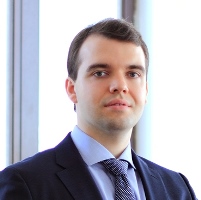Studying Governance of Science and Innovation

Pavel Bakhtin, graduated from Master's Programme ‘Governance of Science, Technology and Innovation’ in 2016. He now works as Deputy Head of the Information and Analytical Systems Unit of the Institute for Statistical Studies and Economics of Knowledge (ISSEK). In this recent interview, he talks about how study intersects with practice, and what kinds of careers programme graduates can pursue.

Pavel Bakhtin
On Choosing a Master’s Programme
I started studying at HSE as a bachelor’s student in the ‘Business Informatics’ programme. The programme teaches students how to analyse, understand and translate business needs into a technical language, manage and work with developers, and oversee scientific processes. By my third year I was already working at the Institute for Statistical Studies and Economics of Knowledge (ISSEK) as a full-fledged developer — in a project involving monitoring global technological trends.
Our project’s first main achievement was the Global Trend Monitoring System (GTMS), a multifunctional database of scientific-technological trends with a web interface that allows users to analyse the data online — whether they be researchers from our institute or outside experts. This project formed the basis of my undergraduate thesis. After that, deciding where I should go for my Master’s was simple.
I already had skills in IT, and I needed to find a way to apply them in a specific subject area. The ISSEK Master's programme gave me the opportunity to do this
It is one’s grasp of the subject area that distinguishes a programmer who performs tasks and an IT developer who assigns them. The master's programme allowed me to delve into the world of science and technology, understand what main tasks lie ahead, and develop my own strategy for solving them from the standpoint of information technology.
What You Learn in the Programme
My studies were closely tied with practice, so I had to master both theory and its tools of application. I studied the basics of scientific and technical forecasting, foresight, science and technology and innovation policy, the tools of scientometrics, and statistical and financial analysis.
The first skill of a researcher, in addition to analytical thinking, is the ability to write well — to ‘digitize’ your knowledge and research results in the form of publications and reports.
It was in ISSEK’s Master's programme that I learned how to structure my thoughts, correctly identify fields of research, conduct research, describe results and draw conclusions.
The Master’s programme allowed me to quickly develop my skills as a researcher
Immersing yourself in the field of foresight and case studies allows you to get to know the specifics of various areas in science and technology; to understand what is happening in medicine, biotechnologies, ICT, energy and other areas; to study a large volume of literature; to develop test roadmaps; and to prepare survey presentations. Particularly worth noting are the tools of quantitative analysis that are taught here. In my work, understanding bibliometric and patent analyses, their methodologies, and the rules for calculating statistics were especially important. It was necessary to understand which sources of information show the level of research and development in Russia, and which do not. In developing text-mining methodology, I directly apply knowledge I’ve gained in these areas.
Main Project
The main focus of my studies was the intelligent analysis of big data. I wrote my master’s thesis on this topic under the supervision of Professor Ozcan Saritas, Deputy Head of ISSEK’s Research Laboratory for Science and Technology Studies. The topic turned out to be of interest to the whole institute — the intelligent analysis of data can be used for scientific and technological forecasting. A team at ISSEK soon formed to develop its own information-analytical text-mining tools (i.e., tools that can process large unstructured text data sets).
All scientific developments and practical IT-tools were used to create the first intelligent big data analysis system for science, technology and innovation in Russia — iFORA (Intelligent Foresight Analytics).
By instantaneously processing tens of millions of scientific and technical documents, the system allows you to conduct express research: you can draw serious conclusions about trends, technologies, markets, key organisations and centers in various areas of technology. Before this project, this kind of research was not possible.
Career Opportunities
The most popular jobs for graduates of our programme are in tech companies and federal government bodies. Usually graduates start working in departments of innovation and strategic planning. They gradually come to understand the subject area, gain a sense of the structure of the industry, its main players, technologies, and trends, and begin to offer their own solutions. After some time, the opportunity to manage small groups of young specialists may present itself.
I myself ‘grew up’ in ISSEK, starting off as a Research Assistant in 2013 and working my way up to a Research Fellow in 2016. Then a department of information-analytical systems was formed at the institute, where I now work as Deputy Head. In recent years, in addition to research and development (and that consists of about 40 projects), I also coordinated the activities of our junior analysts and developers.
Many people want to be independent right away so that they don’t have to work for “the man”— but you can’t learn how to manage people solely from books
You have to start your career path as an analyst or a researcher (this could be at a private company, a start-up, a development institute, a university or governmental department). At the same time, you should try to interact with cool managers and leaders, leaders who are able, by their own example, to demonstrate the best management practices and at the same time inspire you with their positive energy. And if, over time, pursuing management positions doesn’t work out, then your research and analytic skills will still enable you, as a graduate in the field, to advance farther into science or project consulting activities.
Master’s programme ‘Governance of Science, Technology and Innovation’ is taught entirely in English. There are three double degree tracks available. International students can apply online
